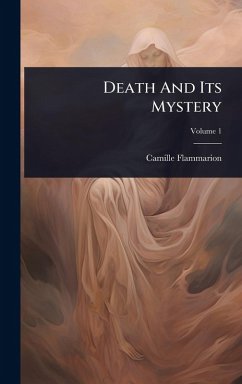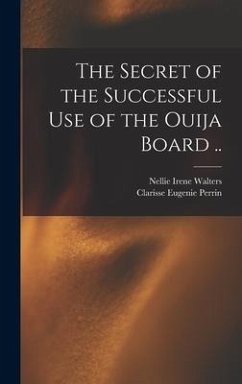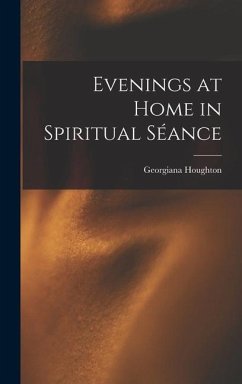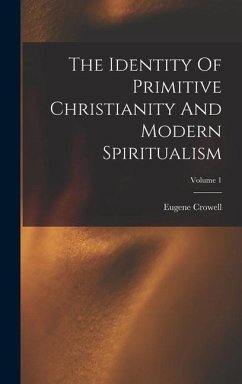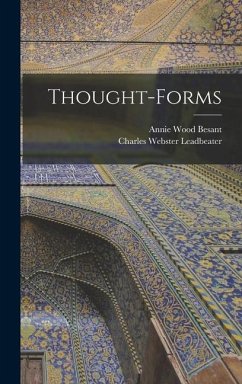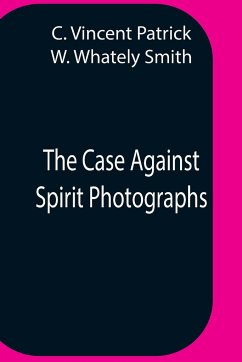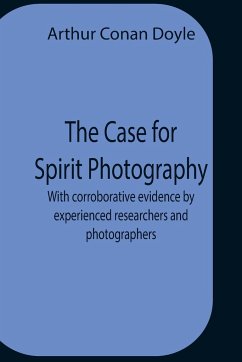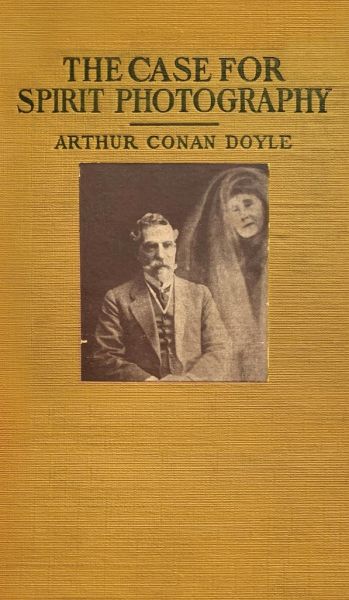
The Case For Spirit Photography
Versandkostenfrei!
Versandfertig in 1-2 Wochen
20,99 €
inkl. MwSt.
Weitere Ausgaben:

PAYBACK Punkte
10 °P sammeln!
"Can the camera show us those who have passed on? Yes!" Arthur Conan Doyle said upon publishing The Case For Spirit Photography in 1923. The book offers a thorough account of his own experiences with spirit photography and those of others. The first spirit photographer, William Mumler, began working in Boston in 1861. Faint figures believed to be lost loved ones appeared in photos behind those sitting in front of the camera. Over the years, Mumler took thousands of spirit photographs, including one of Mary Todd Lincoln showing the assassinated president behind her. P.T. Barnum, always one to e...
"Can the camera show us those who have passed on? Yes!" Arthur Conan Doyle said upon publishing The Case For Spirit Photography in 1923. The book offers a thorough account of his own experiences with spirit photography and those of others. The first spirit photographer, William Mumler, began working in Boston in 1861. Faint figures believed to be lost loved ones appeared in photos behind those sitting in front of the camera. Over the years, Mumler took thousands of spirit photographs, including one of Mary Todd Lincoln showing the assassinated president behind her. P.T. Barnum, always one to enjoy a good humbug, was intrigued as well and displayed several Mumler photographs in his American Museum.But with growing success came more skeptics. And eventually, some of them noticed that several spirits were actually people still living. By 1869, the police were on the case and claimed Mumler was swindling people out of their money. The spirit photographer went to court, supported by the Spiritualist community who maintained their belief that he was innocent and genuine. Mumler was exonerated when no one could prove he'd faked his photos. His legal troubles ultimately hurt his business, but spirit photography lived on through other mediums wielding otherworldly cameras. Doyle believed many of them to be genuine and often came to the defense of photographers accused of fraud. He had been one of Spiritualism's loudest and best-known evangelists in the early twentieth century. He, and its millions of followers, believed that we never die-we merely move on to another plane that could amazingly be captured on film. The author's good friend, Harry Houdini, spent many years exposing fraudulent mediums that capitalized on Spiritualism and people's willingness to believe that the dead could talk. One example was spirit photographer Alexander Martin of Denver, Colorado. Doyle told Houdini that he was "a very wonderful man in his particular line." So the magician paid him a visit, and once inside the studio he attempted to explore the dark room. After a few secretive photographic shenanigans, Martin shared some ghosts. Houdini concluded the photos were simply double exposures. "From a logical, rational point of view, Spirit photography is a most barefaced imposition and stands as evidence of the credulity of those who are in sympathy with the superstitions of occultism," he wrote in 1924's A Magician Among the Spirits. "It is also evidence of how unscrupulous mediums become and how calloused their consciences."Doyle clearly disagreed. Genuine or not, the stories presented within these pages are fascinating and a hundred years later the photos remain extraordinary. And they are faithfully reproduced as published in 1923.




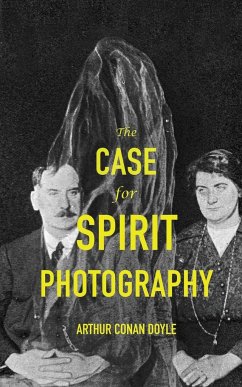
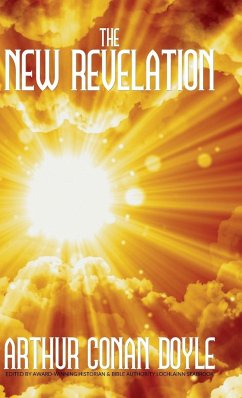
![Dreams [microform] Cover Dreams [microform]](https://bilder.buecher.de/produkte/71/71702/71702081n.jpg)
